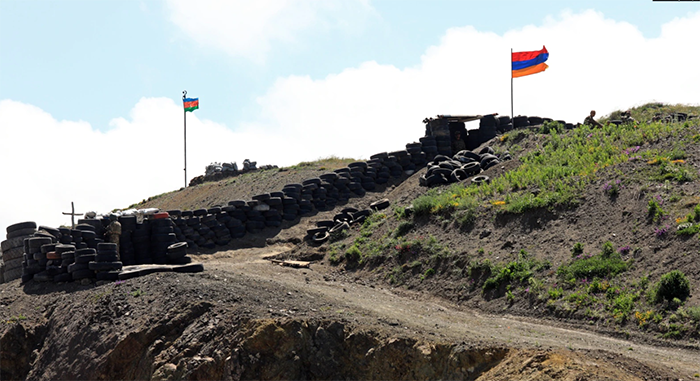By KRIKOR KHODANIAN
Both Baku and Yerevan recently announced that they had reached an agreement on the last two outstanding points of the peace treaty. These points concern the non-deployment of third-party forces along the border and the mutual withdrawal of legal claims from international courts, as well as the commitment not to take further legal actions against one another.
While Armenia expressed its readiness to immediately move forward with signing the treaty, Azerbaijani Foreign Minister Jeyhun Bayramov introduced a new demand: the amendment of the Armenian constitution. Bayramov argued that the constitution contains territorial claims against Azerbaijan, referencing the preamble, which cites the Declaration of Independence and the unification of Artsakh with Armenia. Armenian Foreign Minister Ararat Mirzoyan dismissed Bayramov’s demand as unconstructive, stating that it undermines the negotiation process.
The issue of constitutional amendments is not part of the agreed document. However, Baku continues to insist on it, seemingly in an attempt to extract additional concessions from Yerevan. Armenia maintains that it officially recognizes Azerbaijan’s territorial integrity and that constitutional amendments are an internal matter, unrelated to the peace process. Yerevan also points out that Azerbaijan’s constitution contains provisions implying territorial claims against Armenia.
It remains unclear how long Baku will persist in using this constitutional issue as a stalling tactic, fully aware that such changes require considerable time. This delay appears to align with President Ilham Aliyev’s strategy—prolonging tensions with Armenia rather than securing peace. Azerbaijan has employed similar tactics in recent days, including claims that Armenian armed forces fired on Azerbaijani positions and accusations that the European Union monitoring mission is engaging in espionage against them.
Aliyev’s reluctance to establish peace suggests that maintaining conflict serves his interests. Prolonging the situation allows him to sustain his authoritarian rule without facing internal scrutiny. Otherwise, he would have to answer to his citizens as to why, despite Azerbaijan’s wealth in natural resources, the quality of life in Armenia remains comparatively higher.
On the international stage, the agreement on the peace treaty has garnered widespread support. Various countries and international organizations have welcomed the development, hoping it marks the beginning of a new era. The new U.S. administration has also weighed in for the first time. National Security Adviser Mike Woltz stated, “The conflict in the South Caucasus must end, and all prisoners must be released.” U.S. Secretary of State Marco Rubio echoed this sentiment in a similar statement.
This international response places Azerbaijan in a difficult position. The avenues for political maneuvering are closing, and a decision must soon be made. Thanks to its strategic diplomatic approach, Armenia has placed Azerbaijan before the reality of an impending peace agreement. Now, Baku finds itself searching for ways to navigate the situation it has helped create and delay the final signing of the peace document.
“MASSIS”










